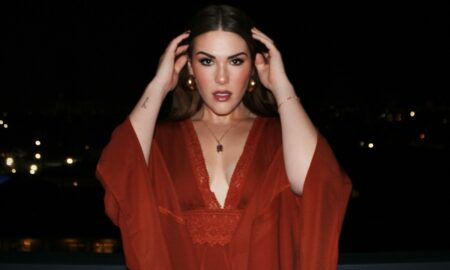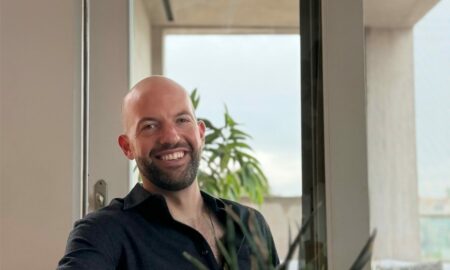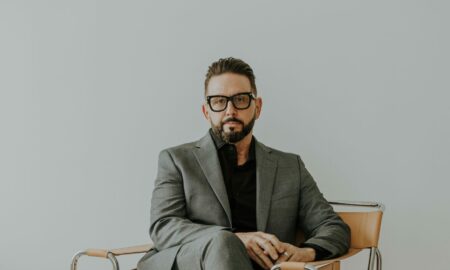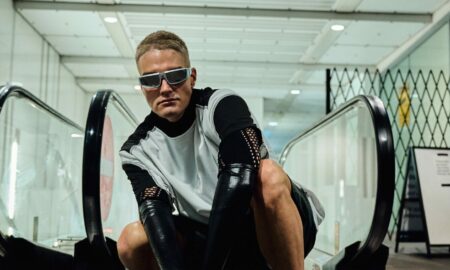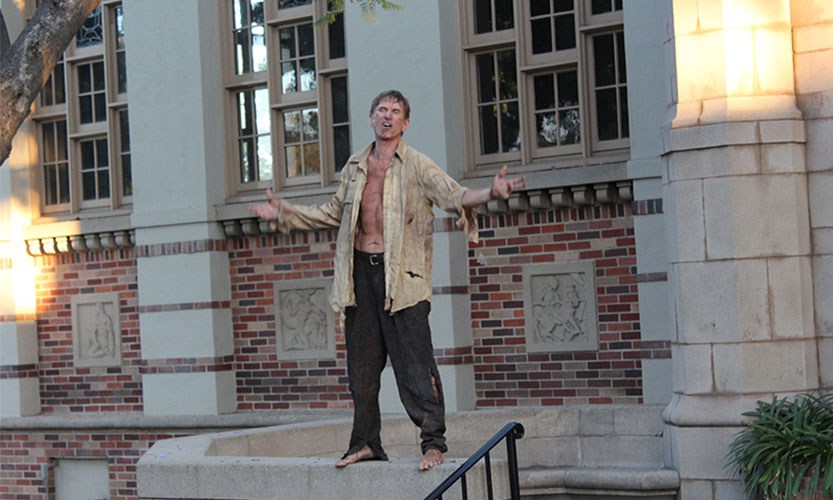

Today we’d like to introduce you to Bill Oberst Jr.
Thanks for sharing your story with us Bill. So, let’s start at the beginning and we can move on from there.
I came to Los Angeles in the midst of an east coast stage career. After making my living for 14 years onstage on the east coast, and in touring productions around the USA, I stumbled into TV work by almost-accident and found myself on the front page of the Wall Street Journal in a positive review. I thought I’d try and get an LA agent “just in case” and remain on the east coast. That was ten years, 175 projects, an Emmy and a lot of water under my LA bridge ago. With the help of a sharp manager and talent agent team, I’ve ended up carving out a niche as what is charitably called in LA circles “a cult actor,” primarily in horror and thriller movies in the USA and Europe. The work has been steady for a decade now, with the branding of “that creepy guy” leading to some nice series roles and some very gratifying related stage projects in New York, Los Angeles and on the road.
Great, so let’s dig a little deeper into the story – has it been an easy path overall and if not, what were the challenges you’ve had to overcome?
“Smooth road” and “Los Angeles” are two sets of words I would never use within the same sentence. The camera acting side of my business is brutally competitive and so conducive to self-aggrandizement, self-delusion and self-destruction that coming through the experience with any professional success leaves personal scars. There’s a reason the myth of Hollywood (and it is just that, a story we tell ourselves) is equal parts of light and darkness. The stage acting side of my business is much less rife with potholes, but, as fate would have it, considerably less lucrative. So one makes one’s deal with the devil, doesn’t one?
We’d love to hear more about your work and what you are currently focused on. What else should we know?
I’m an actor. I have a face. The camera either likes your face or it does not. If it does like your face, and you are beautiful, it likes to see you do a number of things. If, on the other hand, you are not beautiful, and the camera, by some small miracle, happens to like your face anyway, it generally likes to see you do a certain thing (or, at least, a rather small set of things) on camera; things which marry the archetype your face represents to the human condition in ways that audiences will find emotionally and psychologically satisfying. This is a fancy way of saying that the camera likes to see me threaten, harm or kill people. My face having most of the markers which light up the Reptilian Core with red-lighted “Danger!” alarms, I am usually hired to play macabre and menacing characters, often with an undercurrent of melancholy.
To be a successful camera actor is to understand what the camera loves to see you do, to the exclusion of most others in your class of actors. To be a successful working camera actor is understand your role in the hierarchy of a much larger team and to serve your fellow team members consistently and professionally whether you feel like it or not. If you can’t do one or the other of these things, you don’t eat.
Is there a characteristic or quality that you feel is essential to success?
The most important thing I’ve learned as an actor is to listen. Just shut your needy actor trap and listen. Absorb. Inquire. Study. Soak. Eventually, you’ll get your chance to speak. And if you’ve been listening, you’ll be ready to shine.
Contact Info:
- Website: https://billoberst.com
- Email: [email protected]
- Instagram: https://www.instagram.com/billoberstjr
- Facebook: https://www.facebook.com/ActorBillOberstJr
- Twitter: https://twitter.com/billoberstjr
- Other: https://raybradburyliveforever.com





 Image Credit:
Image Credit:
Anne de Haas, Joaquin Montalvan, Michael Helms
Suggest a story: VoyageLA is built on recommendations from the community; it’s how we uncover hidden gems, so if you or someone you know deserves recognition please let us know here.













